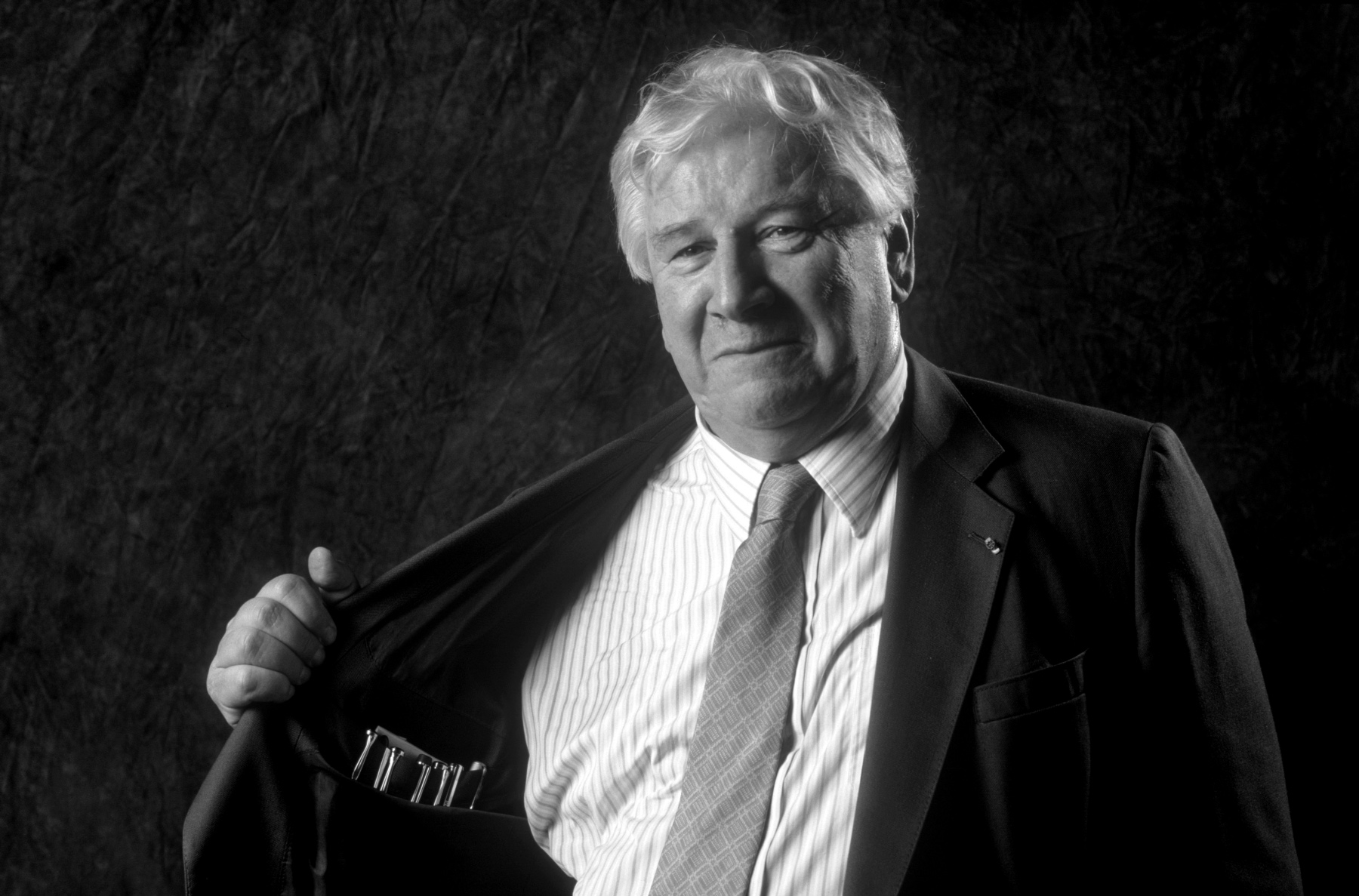
Peter Ustinov
actor
He was born Peter Alexander Freiherr von Ustinow on April 16, 1921 in Swiss Cottage, London, the son of Nadezhda Leontievna (Benois) and Jonah Freiherr von Ustinow. His father was of one-quarter Polish Jewish, one-half Russian, one-eighth Ethiopian, and one-eighth German descent, while his mother was of one-half Russian, one-quarter Italian, one-eighth French, and one-eighth German ancestry. Ustinov had ancestral connections to Russian nobility as well as to the Ethiopian Royal Family. His father, also known as “Klop”, was a pilot in the German Air Force during World War I. In 1919, Peter’s father joined his own mother and sister in St. Petersburg, Russia. There he met his future wife, artist Nadia Benois, who worked for the Imperial Mariinsky Ballet and Opera House in St. Petersburg. In 1920, in a modest and discreet ceremony at a Russian-German church in St. Petersburg, Ustinov’s father married Nadia. In February 1921, when she was seven months pregnant with Peter, the couple emigrated from Russia in the aftermath of the Communist Revolution.
Young Peter was brought up in a multilingual family. He was fluent in Russian, French, Italian and German, as well as English. He attended Westminster College (1934-37), took the drama and acting class under Michel St. Denis at the London Theatre Studio (1937-39), and made his stage debut in 1938 in a theatre in Surrey. The following year, he made his London stage debut in a revue sketch, then had regular performances with Aylesbury Repertory Company. In 1940 he made his film debut in Hullo, Fame! (1940).
From 1942 to 1946 Ustinov served as a private soldier with the British Army’s Royal Sussex Regiment. He was batman for David Niven, and the two became lifelong friends. Ustinov spent most of his service working with the Army Cinema Unit, where he was involved in making recruitment films, wrote plays and appeared in three films as an actor. At that time he co-wrote and acted in L’héroïque parade (1944) (aka “The Immortal Battalion”).
Ustinov had a stellar film career as actor, director, and writer. Among his numerous screen acting gems were his unparalleled, Academy Award-nominated interpretation of Nero in Quo Vadis (1951) and roles in Max Ophüls’s masterpiece Lola Montès (1955), Barefoot in Athens (1966), Les comédiens (1967), Robin des Bois (1973) and L’Âge de cristal (1976). He also wrote and directed such brilliant films as Billy Budd (1962), Lady L (1965) and Memed My Hawk (1984). He was awarded two Oscars for Best Supporting Actor, one for his role in Spartacus (1960) and one for his role in Topkapi (1964), and received two more Oscar nominations as an actor and writer. His career slowed down a bit in the 1970s, but made a comeback as Hercule Poirot in Mort sur le Nil (1978) by director John Guillermin. In the 1980s, Ustinov recreated Poirot in several subsequent television movies and theatrical films, such as Meurtre au soleil (1982) and Rendez-vous avec la mort (1988), while his cinema work in the 1990s also includes his superb performance as Professor Gus Nikolais in George Miller’s excellent dramatic film Lorenzo (1992), a character partially inspired by Hugo Wolfgang Moser, a research scientist who had been director of the Neurogenetics Research Center at the Kennedy Krieger Institute and Professor of Neurology and Pediatrics at Johns Hopkins University.
His expertise in dialectic and physical comedy made him a regular guest of talk show hosts and late-night comedians. His witty and multidimensional humor was legendary, and he later published a collection of his jokes and quotations summarizing his wide popularity as a raconteur. He was also an internationally acclaimed TV journalist. Ustinov covered over 100,000 miles and visited more than 30 Russian cities during the making of his well-received BBC television series Russia (1986).
In his autobiographies, “Dear Me” (1977) and “My Russia” (1996), Ustinov revealed his observations on his life, career, and his multicultural and multi-ethnic background. He wrote and directed numerous stage plays, successfully presenting them in several countries. His drama, “Photo Finish”, was staged in New York, London and St. Petersburg, Russia, where Ustinov directed the acclaimed production, starring Elena Solovey and Pyotr Shelokhonov.
In addition to his acting and writing, Ustinov served as a Goodwill Ambassador for UNICEF and a president of WFM, a global citizens movement. He was knighted in 1990. From 1971 until his death in 2004, Ustinov lived in a château in Bursins, Vaud, Switzerland. He died of heart failure on March 28, 2004, in a clinic in Genolier, Vaud, Switzerland. His funeral service was held at Geneva’s historic Cathedral of St. Pierre, and he was laid to rest in the village cemetery of Bursins. He was survived by three daughters (Tamara, Pavla, and Andrea) and one son (Igor). His epitaph may be gleaned from his comment, “I am an international citizen conceived in Russia, born in England, working in Hollywood, living in Switzerland, and touring the World”.